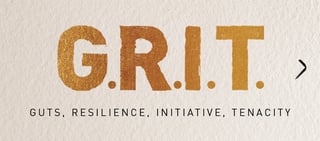 When it comes to education, reading, writing, and ‘rithmetic, used to take center stage and were the standard menu of what was taught to students starting in elementary school. Over time subjects like social studies and history, the applied sciences, and arts and culture were added to the list. In today’s world of education, where students are exposed to seemingly endless cascades of information and are coming to terms with growing up in a world highly affected by globalization, such subjects as community outreach, service learning, and multicultural units are sought after, even in the lower grades.
When it comes to education, reading, writing, and ‘rithmetic, used to take center stage and were the standard menu of what was taught to students starting in elementary school. Over time subjects like social studies and history, the applied sciences, and arts and culture were added to the list. In today’s world of education, where students are exposed to seemingly endless cascades of information and are coming to terms with growing up in a world highly affected by globalization, such subjects as community outreach, service learning, and multicultural units are sought after, even in the lower grades.
Bottom line? Students are learning a lot.
All subject areas have their place and offer significant development and exploration for students of all ages; as education continues to develop and change and schools attempt to foster more community-focused and united environments, subjects like mindfulness and compassion have gained popularity. So what happens when we explore teaching students concepts like kindness, mindfulness, and compassion, as courses themselves? Let’s dive in.

 Note-taking, once the activity de rigueur of learning and memorizing facts and new information, and an activity that certainly appears, well, active, is fast becoming replaced with newer forms of active engagement. Taking notes has long been lauded as a tried and true approach to memory and retention, as well as the best option for having recorded documents with which to refer after an initial discussion, but note-taking in and of itself might not be the best strategy available and can often become its own mindless, passive, or even distracting activity. Instead, active listening with a more strategic approach to obtaining information allows the brain to stay focused on the lecture while still capturing highlights and overarching ideas.
Note-taking, once the activity de rigueur of learning and memorizing facts and new information, and an activity that certainly appears, well, active, is fast becoming replaced with newer forms of active engagement. Taking notes has long been lauded as a tried and true approach to memory and retention, as well as the best option for having recorded documents with which to refer after an initial discussion, but note-taking in and of itself might not be the best strategy available and can often become its own mindless, passive, or even distracting activity. Instead, active listening with a more strategic approach to obtaining information allows the brain to stay focused on the lecture while still capturing highlights and overarching ideas. As you move into the end of a semester, the pressure of exams can daunt even the most successful students. It’s a busy time of year in general, and the mounting strain of a large looming test can feel outright agonizing! Fear not. Here is a list of go-to tips to help you be your most prepared and confident self going into those final exams (or any tests, at any time!)
As you move into the end of a semester, the pressure of exams can daunt even the most successful students. It’s a busy time of year in general, and the mounting strain of a large looming test can feel outright agonizing! Fear not. Here is a list of go-to tips to help you be your most prepared and confident self going into those final exams (or any tests, at any time!) Failure ain’t what it used to be. Or, at least, failure is
Failure ain’t what it used to be. Or, at least, failure is  When a paper is looming, it can be easy to get into absolutes and assume that, unless you can get something really fantastic down in the next couple of hours, you’re doomed. But let’s remember the old adage Rome wasn’t built in a day - and neither was your essay, short story, or research project. All good writing comes from rewriting. Even the greatest writers on earth will admit that their first drafts and ideas were often lackluster. Sometimes downright terrible. So don’t be discouraged. Be willing to write poorly, and then be willing to improve! (Remember that
When a paper is looming, it can be easy to get into absolutes and assume that, unless you can get something really fantastic down in the next couple of hours, you’re doomed. But let’s remember the old adage Rome wasn’t built in a day - and neither was your essay, short story, or research project. All good writing comes from rewriting. Even the greatest writers on earth will admit that their first drafts and ideas were often lackluster. Sometimes downright terrible. So don’t be discouraged. Be willing to write poorly, and then be willing to improve! (Remember that